- Home
- Dubrovnik Museum Guide
Dubrovnik Museums
Dubrovnik has several excellent museums, which are well worth visiting, ranging from modern and contemporary art to Socialism, and from folk costumes to photojournalism.
Most of them is situated in the Old Town, except Red History Museum, which is situated close to the port (take a short city bus ride to reach it) and Love Stories Museum, situated in Pile, just outside the City walls.
For exploring the City walls and the museums in the company of local guide, we recommend joining this walking tour.
You can find a list of other tours (including prices and reviews) here on Viator. We love to use this site when we want to uncover new things while travelling Europe. They're easy to use and book with!
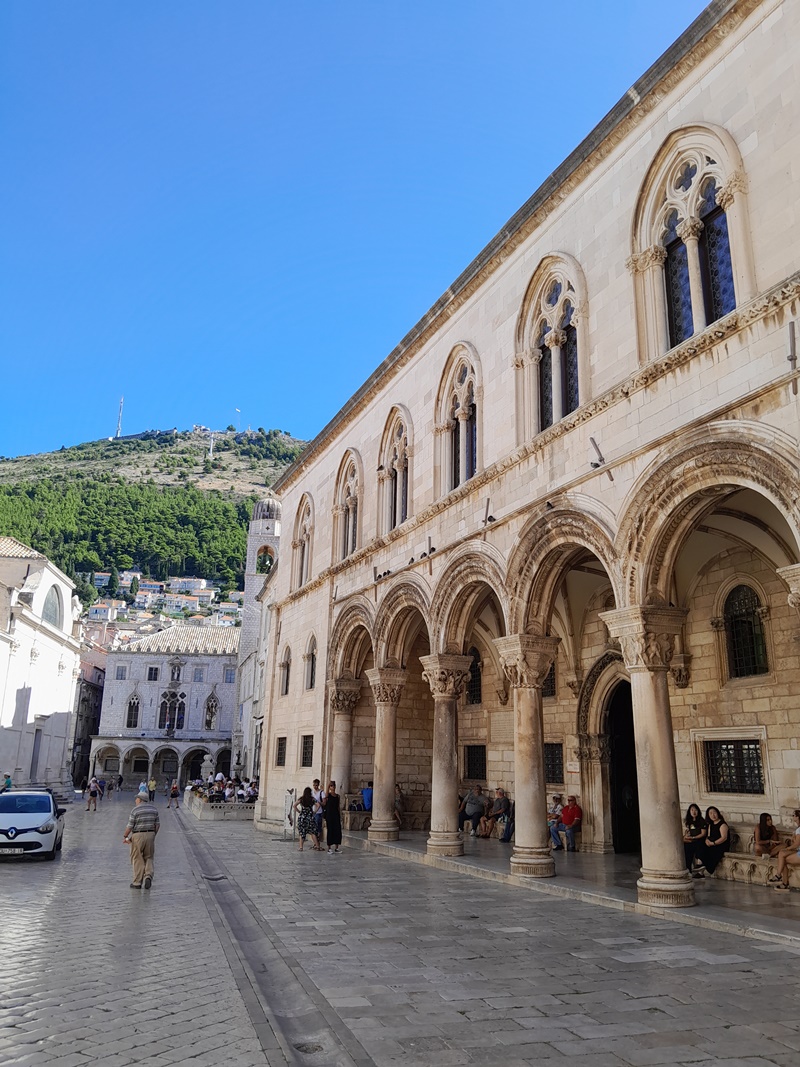 Rector's Palace houses the Cultural History Museum of Dubrovnik
Rector's Palace houses the Cultural History Museum of DubrovnikThis webpage contains affiliate links. Please read our disclosure policy.
Useful tip!
Entry to several of the city’s main museums – including the Cultural History Museum in the Rector’s Palace, the Museum of Modern Art Dubrovnik, the Maritime Museum and the Ethnographic Museum – is included on the Dubrovnik Museums ticket.
Alternatively, buy Dubrovnik Pass to get free entry to the museums (mentioned above) and City walls as well as free bus rides within the city.
Cultural History Museum
(Rector's Palace)
Pred Dvorom 3
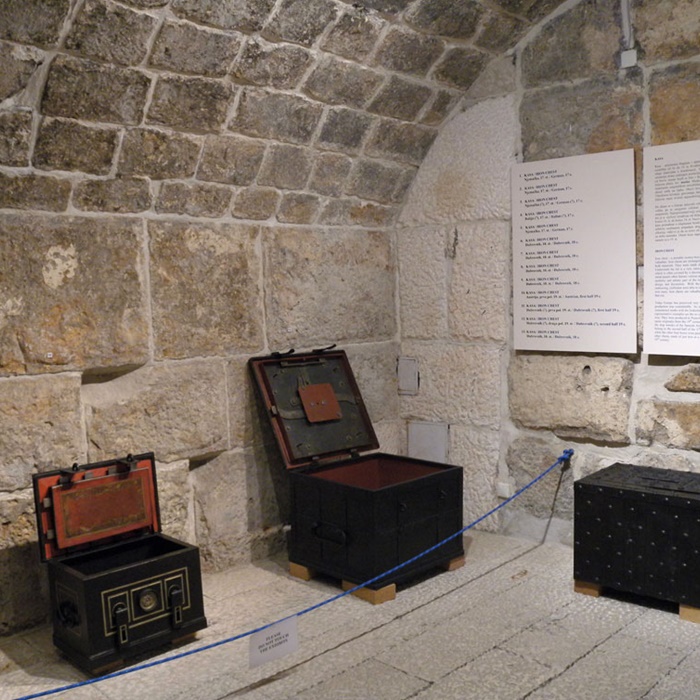
The Cultural History Museum in Dubrovnik consists of about ten thousand objects systematised into fifteen collections featuring paintings, printmaking, furniture, textiles, ceramics, metals, icons, glass, photographs and photographic materials, documents, postcards, old weapony and numismatics. The permanents display is housed in the Rector's Palace.
Rector's Palace is situated between Saint Blaise's Church and Cathedral. To reach it, walk to the end of Stradun from Pile Gate, turn right at City Bell tower and continue walking towards the Cathedral.
Ethnographic Museum Rupe
Od Rupa 3
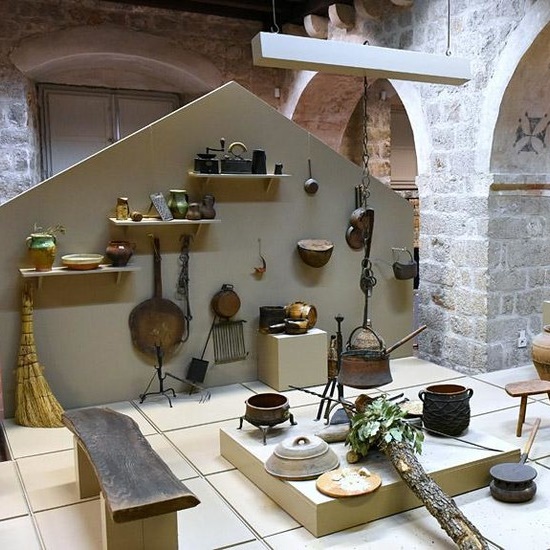
Ethnographic museum is housed in the building of the Dubrovnik Republic' granary, knows as Rupe.
The holdings of the Ethnographic Museum of Dubrovnik have some six thousands five hundred objects of the ethnographic heritage of the Dubrovnik region (Dubrovacko Primorje, the Elaphite islands, Konavle, Mljet, Lastovo, Peljesac, Korcula, Rijeka Dubrovacka and Zupa Dubrovacka), the Croatian people and the nations of the surrounding states.
Maritime Museum
Saint John Fortress
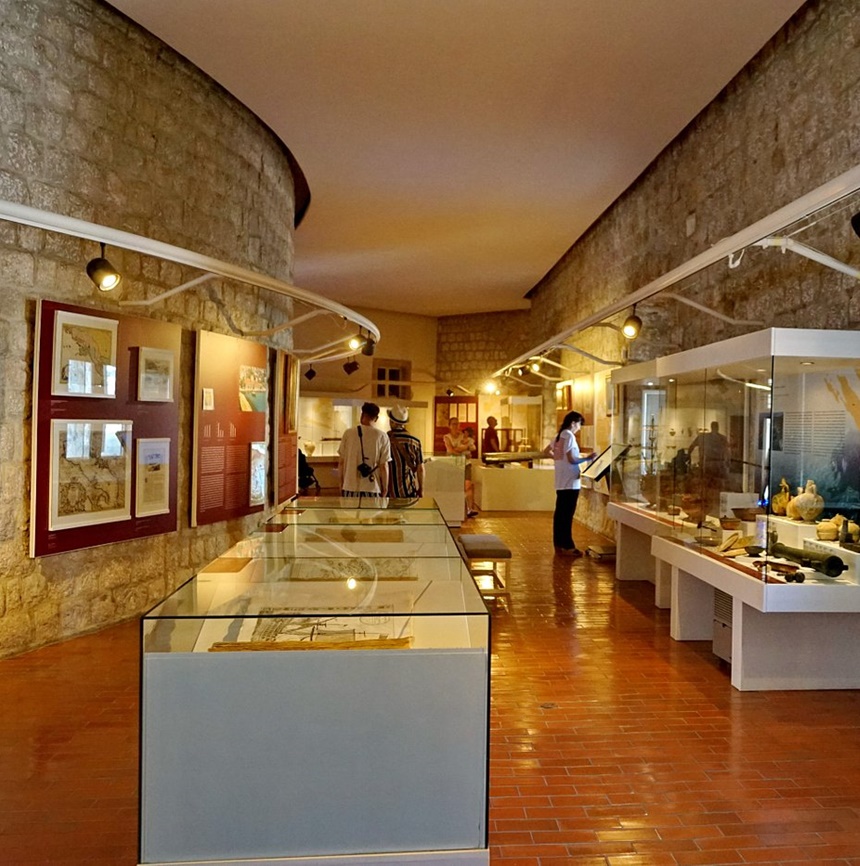
In the past the Republic of Ragusa was one of the leading navies in the world. If you wish to explore this part of Dubrovnik's history, you should visit the Maritime Museum.
It was founded in 1949 and it is located in the St John's fortress in the old city harbour. The museum holds a great variety of written documents, old editions and books, pictures of ships, parts of equipments, ship's instruments and much more. Dubrovnik Maritime museum is believed to be the richest one in Croatia.
Along with the Aquarium, the Museum is housed in the massive Saint John’s fortress in the old harbour.
Natural History Museum
Androviceva 1
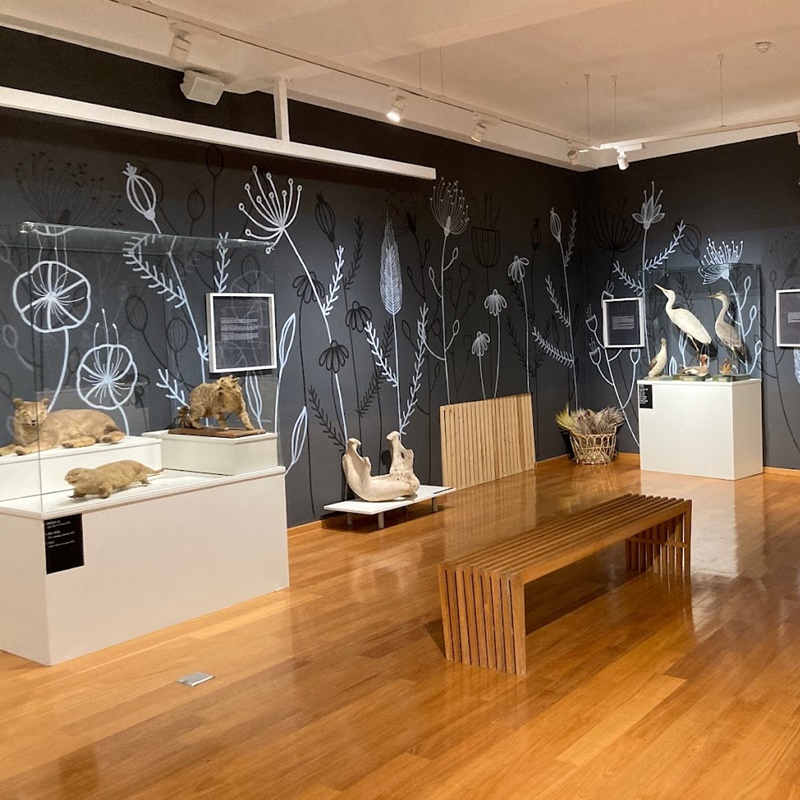
The Natural History Museum was founded in 1872 by the apothecary Antun Drobac, who built it around his own private collection.
This museum owns some extraordinary valuable exhibits, as algae herbarium collected by naturalists Matija Botteri and Marija de Cattani. Here you can discover a range of paleontological, prehistoric and anthropologic artefacts as well as rare mineralogy pieces.
The Museum is located in Androvic Palace, at the corner of Androviceva ulica and the baroque steps that lead to Poljana Rudjera Boskovica (by the Jesuits).
Cathedral and The Treasury
The baroque Cathedral dedicated to the Assumption of the Virgin Mary was built in the 18th century, on the foundations of a Romanesque Cathedral from the 12th century destroyed in the great earthquake of 1667.
The Treasury inside the Cathedral houses 182 relics of saints dating from the 12th to the 19th centuries. Fragments of bones of several saints and martyrs are contained in forms finely crafted by local goldsmiths, decorated with precious metals and stones, the most significant being the relic of Saint Blaise.
Museum of the Franciscan Monastery
A museum with the inventory from the old pharmacy of Friars Minor from 1317 is located in the cloister of the Franciscan Monastery. The ceramic objects came from Italy, France and Holland in the 15th and 16th century. It also contains various presses, mortars, an instrument for distilling water from the 14th century etc.
The Museum shows rare specimens of manuscripts and church music, valuable paintings by unknown masters, a skull relic of St Ursula from 14th century and a collection of votive jewellery.
Museum of the Dominican Monastery
This museum is located in the cloister of the Dominican Monastery. Among many exhibits, it displays some of the most important works of the Dubrovnik Painting School (15th and 16th centuries) including its most prominent representatives Bozidarevic, Hamzic and Dobricevic.
There are also collections of votive jewellery, relics, manuscripts, incunabula, valuable documents, letters from different Popes, Byzantine icons of the Virgin and Infant, and the recently restored Titian's painting depicting St Blaise, Mary Magdalene, the Archangel Raphael and Tobias. A large crucifix by Paolo Veneziano from the 14th century dominates the interiors of the Dominican Church from above its main altar.
Dubrovnik Synagogue and Jewish Museum
Zudioska 5
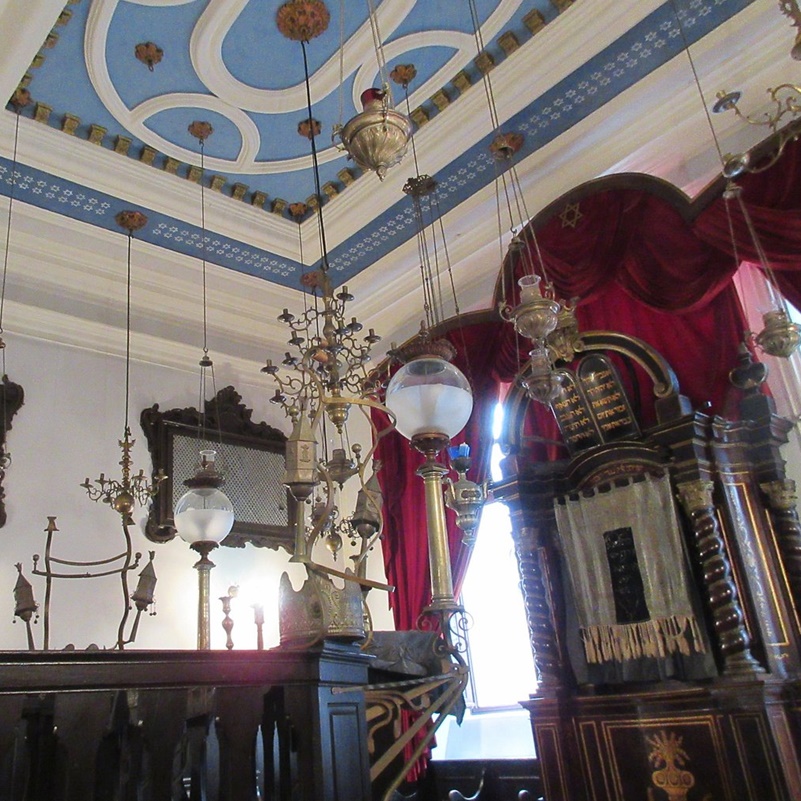
The Synagogue (1352, the second oldest in Europe) and Jewish museum are set in a building which could be reached from within the surrounding houses in what was once the Jewish ghetto.
A permanent Jewish community here was founded at the end of the 15th century following the exodus from Portugal and Spain. The Synagogue is tiny and delightful, with heavy velvet drapes and midnight blue ceiling.
The museum contains valuable menorahs and Torah scrolls, alongside information on the history of the Jewish community in Dubrovnik.
If you are interested in the Jewish history in Dubrovnik, which is quite fascinating, you should join this private guided tour to Jewish ghetto!
War Photo Limited
Founded by photographer Wade Goddard, War Photo Limited is an astonishing collection of photographs which takes a long and unflinching look at the human cost of war.
As well as the permanent collection of images from the breakup of the former Yugoslavia, there are temporary exhibitions of images from other conflict zones across the world, including Syria, Lebanon and Ukraine. There’s also a collection of signed, limited edition prints which are available to buy.
Homeland War Museum
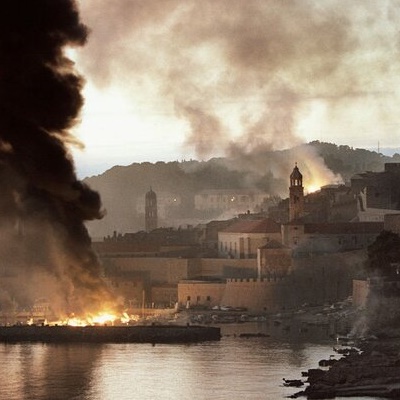
Homeland War Museum is located on the ground floor of the Imperial fort on the Mount of Srdj.
The museum has around 500 showpieces from the period 1991 to 1995. Here you can see documents, photographs, weapons, war maps, part of military equipment from the period of the Homeland war in Dubrovnik.
The entrance fee is 4€, and it can be reached either with the cable car, with a car or you can opt to hike all the way up the hill from the city which is the cheapest but also physically most demanding way.
The hike up is beautiful so it’s worth the effort, however, do try to hike up as early as possible since it gets very hot very early in the day during the summer season.
Red History Museum
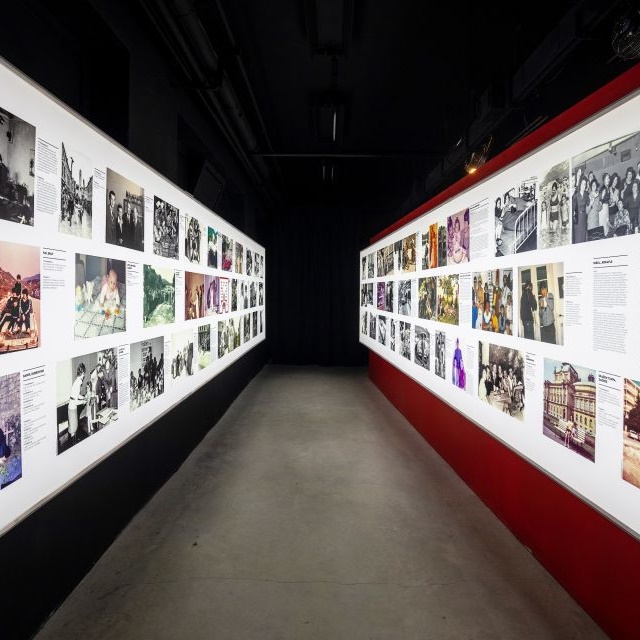
The social history of Yugoslavia 1945-1991 is a source of increasing interest to visitors and this new venture, housed in a former factory near the ferry port, presents the answers to many of their questions.
The display of the Red History Museum begins by presenting a history of communism before going on to explain why Yugoslavian communism, led by Josip Broz Tito, broke away from the Soviet model. Book your entrance tickets in-advance!
Love Stories Museum
Dubrovnik’s Love Stories Museum presents love stories from around the world – from local folklore and mythology, to personal stories told through objects donated to the museum.
The museum also showcases some well-known romances from films and TV series shot in Dubrovnik – including, obviously, Game of Thrones – and the stories behind well-known love songs.
Save time and pre-book your tickets to Dubrovnik's Love Stories Museum!








